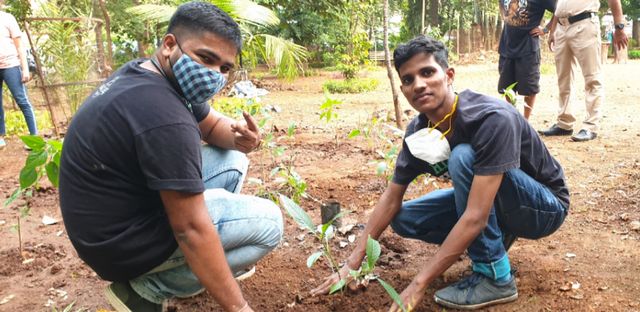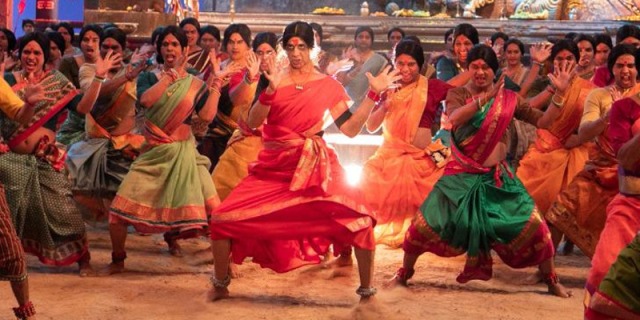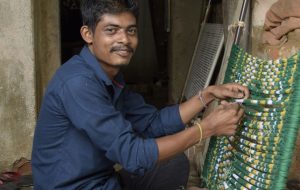UNESCO brings out mental health guide for students
UNESCO New Delhi has started the publication, Minding our Minds during COVID-19: a guide to help foster positive mental health for students in India, towards its continued efforts to respond to the challenges posed by COVID-19 on the education system.
The guide was launched virtually by Ramesh Pokhriyal ‘Nishank’, Union Minister of Education, Government of India, in the presence of high ranking officials from the Government, Dr Yasmin Ali Haque, UNICEF Representative in India, representatives from other UN Agencies, stakeholders and partners.
The coronavirus pandemic has caused more than 430 million children in South Asia to rely on remote learning, who could now join the 32 million children who were already out-of-school. The long-time closure of educational institutes has hindered the growth as well as effected the mental health of students.
What is the mental health guide by UNESCO?
Divided in five modules, the guide is designed for principals, head-teachers, teachers and parents to help alleviate the stress and anxiety that the school going children are feeling. As the schools reopen in India, the course will be a useful reference as well as an advocacy tool for not only enhancing the understanding of mental health issues within their students and children, but also to scale up their efforts in helping them manage their mental wellbeing.
The guide from UNESCO is an extended version of a set of posters, Minding our Minds which were released earlier this year in multiple languages including English, Hindi, Tamil and Sinhala. These posters provided guidance to children, women and families who may be experiencing anxiety during the pandemic.
Disclaimer: This media release is auto-generated. The CSR Journal is not responsible for the content
3 Ways to Dress Local this Diwali
Diwali shopping is at its peak. Online portals are competing for your attention. Malls have reopened with sales of the century. Fashion designers are rolling out the red carpet now that they are back in business. However, we recommend going local for your 2020 festive shopping. Patronise small businesses selling handmade clothes, which are Made in India, of course.
Show solidarity for the Indian government and Prime Minister Narendra Modi’s Vocal for Local campaign. Rather than splurging on big brands and international brands, look for local brands, manufacturing and supply chains. This is the only way the vision of Atmanirbhar Bharat will come true in the post-COVID era.
3 Ways to Dress Local
Taking the Vocal for Local mantra to a higher level are movements supporting local weavers, artisans and tailors. Social enterprises like Women on Wings and Tata Trusts initiative Antaran cut out the middlemen and help artisans and craftspeople get a fair price for their labour of love. This Diwali, shop at such places and dress local in style.
1. CRO Ikat
22-year-old Chittranjan Patra from Odisha is keeping the disappearing art of bandha alive with his little brand CRO Ikat that brings out beautiful handwoven sarees, dupattas and women’s clothing. His father was a master of the Bandha technique in his village but dissuaded Chittranjan from pursuing the craft because he didn’t see a future in it. Instead, he encouraged him to pursue an education. However, he died prematurely and Chittranjan’s mother was left to bring up the kids by herself.
Little Chittranjan made Bandha ikat to financially support the house while simultaneously doing a formal ITI course. He started working at a spinning mill plant in Gujarat but came back after Tata Trusts started the Antaran initiative. Their support has led to his own clothing finding buyers online and offline.
2. Zaina by CtoK

This is a social enterprise that is becoming a source of pride, identity and livelihood for Kashmiri weavers and artisans. Zaina by CtoK has stunning artefacts and clothes like the pure pashmina Jaal Shawl pictured here with intricate Sozni hand embroidery.
CtoK stands for Commitment to Kashmir, which has been active in the region since 2011. The collective is trying to keep the rich traditional craftsmanship of Kashmir alive. They have been working with artisans to re-interpret 600-year-old crafts and techniques for a contemporary touch.
3. Eco Tasar
Eco Tasar’s Weave A Hope initiative provides sustainable livelihoods to rural women who are silkworm rearers, yarn makers and handloom weavers in the hinterland.
Eco Tasar Silk Pvt. Ltd. started out as a livelihood project by the NGO PRADAN in Jharkhand. It has grown into a social enterprise making exquisite Tasar silk stoles, scarves, and sarees that are sold in India and abroad. No two products here look alike because they have a multi-tonal appearance. Eco Tasar adheres to principles of Fair Trade and uses natural vegetable dyes and Azo-free dyes.
CSR News: Ramky Enviro opens Construction & Demolition waste recycling plant in Hyderabad
Ramky Enviro Engineers Limited and Greater Hyderabad Municipal Corporation today announced the launch of a new Construction & Demolition (C&D) waste recycling plant in Jeedimetla, Hyderabad.
Ramky Enviro Engineers Ltd (REEL), a KKR-backed company, is a provider of comprehensive environment management services. REEL offers a whole gamut of environmental services and infrastructure solutions under various categories such as Waste Management, Waste to Energy; Recycling, and Environmental Solutions such as remediation, ETPs and wastewater treatment. The Jeedimetla plant is another step in the company’s CSR efforts to help address the low C&D waste recycling rate of the country.
The Jeedimetla C&D waste recycling plant is a processing facility fully equipped to handle the collection, transportation, processing and management of C&D waste generated in and around Hyderabad. The plant has the capacity to process up to 500 tonnes of C&D waste for recycling per day. It will operate under a public-private partnership model.
Goutham Reddy, MD & CEO, Ramky Enviro Engineers Limited, said: “This new C&D plant, equipped with a processing capacity to handle up to 500 tonnes of waste, will help the city build up its waste recycling capabilities to address the long-standing issue of construction debris dumping on roadsides, open plots, and other places. While it will be a relief to the city which will clear roadside heaps and heaps in parks and open places in the city, it is able to recycle and recover more than 90% of the materials collected. We are proud to partner with GHMC in inaugurating this plant for the city of Hyderabad.”
Recent research by the Centre for Science and Environment (CSE) reveals that India only manages to recover and recycle about 1% of its C&D waste. “To improve C&D waste recycling and management in India, our country and its cities will need many more such facilities. Ramky Enviro is committed to working with our partners and the authorities to launch similar plants across the country with the aligned objective of building a clean and green environment with high standards of liveability for generations to come,” Reddy added.
Disclaimer: This media release is auto-generated. The CSR Journal is not responsible for the content
Maharashtra CM Uddhav Thackeray flags off #GiveWithDignityTM CSR drive
A global pandemic. A nation-wide lockdown. A humanitarian crisis. Natural Calamities. All in a short span of 7 months. To support India get back on its feet – with sheer grit and resilience Mukul Madhav Foundation with CSR support from Finolex Industries launched its drive. #GiveWithDignityTM is serving grocery and hygiene essential kits to more than 70,000 households across 24 states with a hope to spread joy and happiness, this festive season.
Maharashtra Chief Minister Uddhav Thackrey inaugurated and flagged off the CSR drive on November 7, 2020 in Mumbai at the Matoshree Sports Club. Others present at the drive were Adv. Gauri Chhabria, Paul Abraham, CEO, Hinduja Foundation, B R Mehta, Vice President, Finolex Industries, and Sanjay Asher, Director, Orbit and Subash Desai, Sr. Leader of Shiv Sena and Minister of Industries Maharashtra.
What is #GiveWithDignityTM?
20,000 kits are being distributed between October 25th and November 13th across 20 districts of Maharashtra (Mumbai, Pune, Amravati, Beed, Osmanabad, Vidharb, Marathwada, Gadchiroli, Washim, Ratnagiri, Palghar, Buldhana, Parbhani, Nashik, Solapur, Sangli, Satara, Ahmednagar, Aurangabad and Jalgoan). These kits for Maharashtra have been sponsored by IndusInd Bank, Finolex Industries and Mukul Madhav Foundation.
The beneficiaries belong to marginalized communities who have been identified with the help of NGOs, like-minded friends, well-wishers of the Foundation along with the support of local District Administration. Majority of the kits’ contents have been procured from SHGs, MSMEs and other NGOs. The ration supplies have been sourced from Purti Group, Maandeshi Foundation and Star Foods. Masks have been made by CYDA (Centre for Youth Development and Activities) and SOBATI, Baramati have sent sanitary napkins.
Nitin Gadkari, Minister of State for Road Transport and Highways, Minister of Shipping and the Minister of Micro, Small and Medium Enterprises in the Government of India applauded the NGO and its effort of empowering small local businesses.
Within the first two months of the pandemic, MMF had supported nearly 80,000 daily wage earners with grocery essentials and cooked meals. Reaching out to the many displaced families across West Bengal, Assam and Maharashtra, the foundation assisted to rescue and rehabilitate those affected by Cyclone Amphan, Cyclone Nisarga and floods across Assam.
Finolex Industries Ltd, CavinKare, Marico, Hinduja Foundation, Nestle, Indorama, IndusInd Bank, Ashok Leyland, Gulf Oil and other corporates have willingly come forward this Diwali to #GiveWithDignity
Ritu Prakash Chhabria, Managing Trustee, Mukul Madhav Foundation said, “What was a dream 9 weeks ago has transformed into reality and will culminate on Diwali. #GiveWithDignityTM is an emotion that has strived to empower SHG’s & MSME’s while in turn ensuring those who have lost their livelihood are provided with basic grocery and hygiene essentials. The power of collaboration has brought some of the leading brands to join hands with us and support us in our mission to spread hope and happiness this festive season. I am indebted to all those who have had faith in the work we do and lent us their support thereby rippling the benefit to many more.”
Disclaimer: This media release is auto-generated. The CSR Journal is not responsible for the content
CSR of ACT Fibernet donates modular ICU units to Tamil Nadu Government for COVID-19 patients
As novel coronavirus continues to spread, ACT Fibernet in its effort to help combat COVID-19, joined hands with the Tamil Nadu government and donated 2 modular ICU units as part of its CSR. Each of the units are equipped with modern facilities and will be installed at the Government Kilpauk Medical College, Chennai to treat COVID-19 cases.
The modular ICU units were inaugurated by Chief Minister of Tamil Nadu, Edappadi K. Palaniswami, through a virtual event in the presence of eminent dignitaries including Dr. C.Vijaya Baskar, State Minister of Health & Family Welfare, K. Shanmugam, Chief Secretary, Tamil Nadu and J. Radhakrishnan, Health Secretary, Tamil Nadu.
ACT Fibernet is driven towards supporting the efforts of various state governments to curb the novel coronavirus. Earlier in September, the company donated 25,000 rapid antigen testing kits to the Government of Telangana.
Each unit has 5 beds with medical air conditioning to maintain 22-25 Deg Celsius temperature, provision to provide 12-16 fresh air, HEPA filter with Efficiency: 99.999% Down to 0.3μ and Pre & inter Filter. Specialised AHU & Refrigeration to cater to the high demand and contained UV treatment to kill pathogens in the supply and exhaust air.
“During this challenging time, one of our top priorities is to extend support to the community we operate in and help fight this life-threatening virus. We are honoured to assist the Tamil Nadu government and contribute towards this cause. We hope this will help meet the requirement to treat virus affected patients to an extent,” said Bala Malladi, CEO, Atria Convergence Technologies Ltd.
Disclaimer: This media release is auto-generated. The CSR Journal is not responsible for the content
Indian hip-hop collective fights climate change with Back 2 The Roots Jam
While weekends are the perfect days to laze about, they also consist of key hours during which we, as inhabitants of Earth, can actively engage with issues that matter. Last Sunday, Mumbai-based hip-hop school The Dharavi Dream Project (TDDP — Asia’s largest afterschool of hip-hop), graffiti collective Wicked Broz and civilian welfare initiative MRRWA (Military Road Residents Welfare Association) joined hands for a tree plantation drive, turning hip-hop into a medium of environmental change (#HipHopEkMadhyam — Hip-Hop: A Universal Channel). Christened the Back 2 The Roots Jam, the event riffed on the elements of hip-hop to encourage people to engage with the urgent environmental crisis.
As climate change threatens the lives of every species on the planet, the organizers honoured hip-hop’s spirit of awareness and education through a breaking workshop organized by TDDP. This class, led by the b-boys and b-girls of TDDP, highlighted the causes and effects of climate change through dance.
The breaking workshop was followed by a graffiti and street art workshop by Wicked Broz (that also runs the vibrant Marol Art Village). This class helped participants learn more about the high stakes of saving an ailing planet as well as portray their ideas for a better future. These activities were preceded by a tree plantation drive spearheaded by the city-based collectives who gathered in Marol’s Bharatvan park, an eco-haven nurtured by the MRRWA since the late 1990s.
The trailblazing artists and brilliant students of TDDP planted 100 tree saplings in Bharatvan before using #HipHopEkMadhyam to advocate and spread knowledge about how we, as individuals, can save our environment.

The created graffiti stands colourful and resplendent, encased on a wall at Bharatvan, harbouring the hope for a bright future for the Earth and its inhabitants. Decked in environment-friendly messaging such as ‘SAVE TREES,’ the mural showcases a Mumbai wherein lush greenery stands alongside cutting-edge infrastructure, one built bearing in mind the conscious effect on the other, marking a way forward for the city.
Says Dolly Rateshwar (Co-founder, The Dharavi Dream Project): “Graffiti and Street Art can be controversial for many. But for some, it is a medium for voices, a channel for social change and saving our environment. Through the Back 2 The Roots Jam, we at TDDP endeavoured to engage with the urgent consequences of deforestation and land conflict, as well as advocate for planting more trees to save our ecology and sustain life on the planet. The street art crew of TDDP alongside Wicked Broz and MRRWA collectively created awareness about the damage caused by unregulated construction and reduction in Earth’s green cover through hip-hop’s sub-elements of Graffiti and Breaking. We couldn’t have partnered with better organizations than MRRWA and Wicked Broz for this initiative and we hope it makes a difference.”
Says Suresh Nair (Head, MRRWA): “Over the years, MRRWA has stood for all things positive for society, be it garden development or waste management. MRRWA has also engaged with civic issues, interacted with the Police, BMC and elected representatives; sometimes even confronting various authorities and individuals to resolve pressing social issues. Bharatvan is a shining example of public participation. In the late 90s, MRRWA converted a barren, abandoned quarry into a 6-acres wide mini rain forest. Today, that area is Bharatvan which boasts more than 850 trees and shrubs, as well as scores of birds, butterflies and several species of reptiles. We are glad to have joined hands with The Dharavi Dream Project and Wicked Broz to give back to the environment during Diwali by planting 100 more trees,”
Says Omkar Dhareshwar (Co-founder, Wicked Broz and Creator, Marol Art Village): “We are working towards creating an ecosystem where any artist can come and learn, nurture their skills and find a platform to showcase their talents. The perfect synergy between the artist and resident community found at the Marol Art Village is what makes Marol the perfect center for this movement. We are thrilled to have worked with TDDP and MRRWA to do our bit to save the planet. We plan to make this activity a recurring one; teaching kids the value of nature while having some fun!”
Humanity might be facing its biggest extinction event yet, but it’s not too late to save our world as we know it. As climate change becomes an immediate reality, it’s imperative that every person does their part. The good news is that the climate effort can be shouldered by one and all, in ways big and small. Whether one spends their weekend planting trees or advocating for climate change awareness through art, every human being forms the one drop in the ocean that makes it all count. Join and engage with TDDP, Wicked Broz and MRRWA to be the changemakers today so that humanity may usher in a fruitful tomorrow.
Disclaimer: This media release is auto-generated. The CSR Journal is not responsible for the content
Artificial Intelligence will Enable Higher Employment in Future
The world is in the wake of experiencing the biggest Man-Machine alliance since the invention of Artificial Intelligence (AI). According to ‘The Future of Jobs 2018’ report from the World Economic Forum (WEF), machines and algorithms in the workplace will likely create 133 million new roles and jobs by 2022 with smart workforce adaptation.
Automation in coming years will focus on more creative ways of a higher order of work that has been performed in a traditional manner for years. As the world saw restricted human interaction due to COVID-19, technology and digitisation saw rapid acceleration in automation to create more workable environments.
Positive impact of Artificial Intelligence on economy
Research by McKinsey Global Institute approximates that AI may deliver an additional economic output of around $13 trillion by 2030, increasing global GDP by about 1.2 % annually. This growth will be driven, firstly through strong labour productivity due to innovative technologies allowing more efficient workforce-related time management. Secondly, with intelligent automation; AI will virtualise the workforce making them more capable of problem-solving. And thirdly, through the diffusion of AI innovation, novel revenue streams will be generated.
A few ways AI is already positively impacting the economy is through fraud detection, virtual assistants, writing bots and chatbots, face recognition, identifying at-risk segments. Today there are automated assistants like SIRI and Alexa for smartphones that perform a variety of errands for users, Tesla Cars that are connected on a shared cloud to provide information across the entire taskforce.
AI will enable workforce and employment
Development in AI advances Internet of Things (IoT) through which trend prediction and trend mapping can be done in milliseconds, making industries far more efficient and sustainable in the future. The workforce will be able to solve complex patterns, problems with ease, accurately detect risks and improve the overall employee-customer experience.
For instance, Telerobotics can operate machines remotely, and with the advancement of universal remote working, along with holographic transportations that can emulate physical interactions onto holographic images, AI can change employment fields forever. Interactions will become easier and faster.
AI will drive demand for new jobs
Chatbots – the recently emerged communications conduits for brands and consumers – have increased the demand for human trainers. While understanding language is one goal for perfecting chatbots, injecting emotional intelligence into automated communication tool is another. This is the reason why companies are hiring content moderators in big numbers.
In addition to trainers, AI will also increase the demand for explainers who will bridge the gap between the new systems and their human managers. Business leaders, for instance, will need expert assistance while basing decisions on algorithms. Also, these explainers will run the required operations when the machines make mistakes and take steps to avoid similar mistakes in the future.
Another major transformation that can be expected in the future of employability is Robotic Process Automation (RPA); a technology that allows individuals to configure an automated software system, and use it to integrate the actions of a human business processor into digital systems. It will help in monitoring workflow, making informed decisions for maximum efficiency.
This tool can identify any problem faced by the company/ individual with a user interface and immediately provide an effective solution based on a vast variety of repetitive tasks previously interpreted. It is said that an “RPA software robot never sleeps and makes zero mistakes.” AI tools can maximize human input in an industry by complimenting the human work.
Towards a more secure and protected future
In the foreseeable future, industries must prepare their workforce in a way that humans can adapt to changes in technology, predominantly for those jobs that will be fully automated. Businesses must believe that AI can be used as an instrument to supplement and improve, not replace work. If specific jobs are completely displaced by AI in future, it will provide industry experts to engage further in solving intricate subjects that require creative thinking of humans.
The proliferation of Artificial Intelligence in Machine Learning and business processes will make distinctively segregated markets collide, resulting in quantifiable benefits for industries and creating a more secured and protected future. The understandings gathered from multiple uses of AI will enable businesses to rethink knowledge in ways that have been unattainable so far.
 The author Alok Bansal is the Managing Director and Country Head, India at Visionet, where he manages strategy, global operations and leads the growth of technology BPM verticals. He made his early fortune as a high-performance management leader in several global companies and has played an influential role in leading large-scale technology organizations like Altisource and XL Dynamics. He is a successful alumnus of the prestigious Indian Institute of Technology. He earned his B.Tech from IIT, Mumbai.
The author Alok Bansal is the Managing Director and Country Head, India at Visionet, where he manages strategy, global operations and leads the growth of technology BPM verticals. He made his early fortune as a high-performance management leader in several global companies and has played an influential role in leading large-scale technology organizations like Altisource and XL Dynamics. He is a successful alumnus of the prestigious Indian Institute of Technology. He earned his B.Tech from IIT, Mumbai.
Views of the author are personal and do not necessarily represent the website’s views.
सीएसआर से मिलेगी शिक्षा और बुझेगी प्यास
कोरोना की वजह से देश की शिक्षा प्रणाली बुरी तरह प्रभावित हुई है। साल खत्म होने आया है लेकिन स्कूल अभी तक नहीं खुला है। बच्चों की पढ़ाई प्रभावित ना हो इसलिए सरकार और स्कूल मैनेजमेंट ऑनलाइन पढ़ाई करवा रही है। ऑनलाइन पढ़ाई बच्चों के साथ साथ अभिभावक भी कर रहें हैं वो भी मज़बूरी में। लॉक डाउन होने के नाते लोग अपने अपने दूरदराज गांव चले गए है। रिमोट इलाकों में कभी बिजली नहीं होती। तो कभी नेटवर्क नहीं। किसी तरह ऑनलाइन पढ़ाई की जुगत करते बच्चों के पास ये भी नौबत है कि उनके पास स्मार्ट फ़ोन तक नहीं होता।
सीएसआर बनता शिक्षा के लिए मददगार
बच्चों को मोबाइल बिगाड़ रहा है इसकी दुहाई देते देते टीचर कभी थकते नहीं थे। आज वही मोबाइल के सामने घंटों बैठे रहने के लिए मजबूर कर रहें हैं। लेकिन इसमें भी दिक्क्त उन गरीब अभिभावकों को है। जो बहुत ज्यादा मोबाइल के जानकार नहीं हैं या उनके पास एंड्राइड फ़ोन नहीं है। हाल ही में 23 राज्यों ने 40,000 बच्चों के बीच की गई एक सर्वे में यह सामने आया है कि लगभग 56 प्रतिशत बच्चों के पास स्मार्टफोन की सुविधा नहीं है। ऐसे में कॉर्पोरेट सोशल रिस्पांसिबिलिटी यानी सीएसआर इन पेरेंट्स और बच्चों की मदद के लिए सामने आया है।
शिक्षा के लिए ओप्पो इंडिया ने सीएसआर के तहत ‘वॉल ऑफ नॉलेज’ की शुरवात की
स्मार्टफोन बनाने वाली कंपनी ओप्पो इंडिया ने सीएसआर (CSR) पहल ‘वॉल ऑफ नॉलेज’ शुरू करने की घोषणा की है। ‘वॉल ऑफ नॉलेज’का उद्देश्य वंचित बच्चों को वर्चुअल शिक्षा की दुनिया से जुड़ने की सुविधा देना है। वॉल ऑफ नॉलेज एक यूनिट है जिसके साथ कई मोबाइल एक टेबल पर रखे हैं। जिसके सामने एक बड़ी एलईडी स्क्रीन है जो बच्चों को वर्चुअल शिक्षा प्रदान करता है। इस पहल का वंचित बच्चों को बहुत अधिक लाभ होगा और उनके एजुकेशन में मदद मिलेगी और बच्चों की डिजिटल रुचि भी बढ़ेगी।
ओप्पो के वाईस प्रेसिडेंट तस्लीम आरिफ ने बताया कि यह साल हर किसी के लिए बहुत चुनौतियों भरा रहा। बड़ी तादाद में बच्चे आज भी ऑनलाइन एजुकेशन से वंचित हैं। ओप्पो इंडिया की ये पहल इन विद्यार्थियों के लिए मददगार साबित होगी। ओप्पो वॉल ऑफ नॉलेज की शुरवात नोएडा, लखनऊ, कोलकाता, हैदराबाद और चेन्नई जैसे शहरों से होगी जहां स्थानीय गैर सरकारी संगठनों से भागीदारी की है।
कांशीराम ट्रामा सेंटर में पानी का मुकम्मल इंतजाम नहीं, सीएसआर से बुझेगी प्यास
वही सीएसआर से अब कानपुर वालों को पीने के लिए शुद्ध पानी मिल सकेगा। मान्यवर कांशीराम संयुक्त चिकित्सालय एवं ट्रामा सेंटर में पानी का मुकम्मल इंतजाम नहीं हैं। जिसकी वजह से अस्पताल के मरीज और उनके तीमारदार पीने के पानी के लिए इधर-उधर भटकते रहते हैं। इस बाबत कई बार मरीजों और उनके तीमारदारों ने शिकायत भी की। सालों की समस्या अब जाकर जल्द ही खत्म होगा। कानपुर रामादेवी स्थित मान्यवर कांशीराम संयुक्त चिकित्सालय व ट्रामा सेंटर में मरीज़ों और उनके तीमारदारों को शुद्ध और स्वच्छ पानी के लिए अस्पताल परिसर में कॉर्पोरेट सोशल रिस्पांसिबिलिटी (Corporate Social Responsibility) फंड से दो हजार लीटर की क्षमता वाला आरओ प्लांट लगाने की तैयारी है।
हिंदुस्तान एरोनॉटिक्स लिमिटेड सीएसआर के तहत लगाएगी कानपुर के अस्पताल में RO
सीएसआर का ये काम हिंदुस्तान एरोनॉटिक्स लिमिटेड के जरिये होगा। अस्पताल में रोजाना दो हजार की ओपीडी है, कानपुर का ये अस्पताल बड़े अस्पतालों की फेहरिश्त में शुमार है। 100 बेड की क्षमता वाले इस अस्पताल में पानी की बुनियादी सुविधा नहीं था। पांच से छह हजार मरीज, तीमारदार और कर्मचारी पीने के पानी के लिए परेशान होते हैं। इन्ही परेशानियों को देखते हुए अस्पताल के सीएमएस ने हिंदुस्तान ऐरोनॉटिक्स लिमिटेड (एचएएल) के प्रबंधन से सीएसआर फंड से अस्पताल परिसर में आरओ प्लांट लगाने का आग्रह किया था। एचएएल ने मरीज हित में सीएसआर फंड से अस्पताल परिसर में आरओ प्लांट लगाने के प्रस्ताव को मंजूरी दे दी है और जल्द ही आरओ प्लांट लगाने पर काम शुरू हो जायेगा।
Akshay Kumar in Laxmii might hurt rather than help trans community
The year 2020 has been unkind to people across classes and countries, but the minority that has probably suffered the most in India is the transgender community. From the loss of livelihoods to blatant misrepresentation in the Transgender Persons Act, 2019, trans people suffered one setback after another. One more is threatening to rear its ugly head in the form of the film Laxmii (earlier titled Laxmmi Bomb). The “horror comedy” stars ‘woke’ superstar Akshay Kumar and is all set to release this weekend on an OTT platform and theatres worldwide.
Laxmii is transphobic not trans-friendly
Laxmii features Akshay as a cisgender man who is haunted by a “kinnar” (Hindi for transgender) ghost. While the film’s stars including Kiara Advani have been going around town tooting their own horn about a mainstream male actor playing a transgender character, Laxmii is actually quite transphobic.
The source material is a Tamil film by the same director (Lawrence). Kanchana was made in 2011, and largely elicited laughs at the physical gaffes of a straight man wearing a saree as a transgender woman. The original Kanchana played off transphobia; the only trans character there was an evil supernatural entity out for revenge. The Hindi remake has the same premise. This is the same stereotypical portrayal of the transgender community we have been seeing in Bollywood all these decades.












